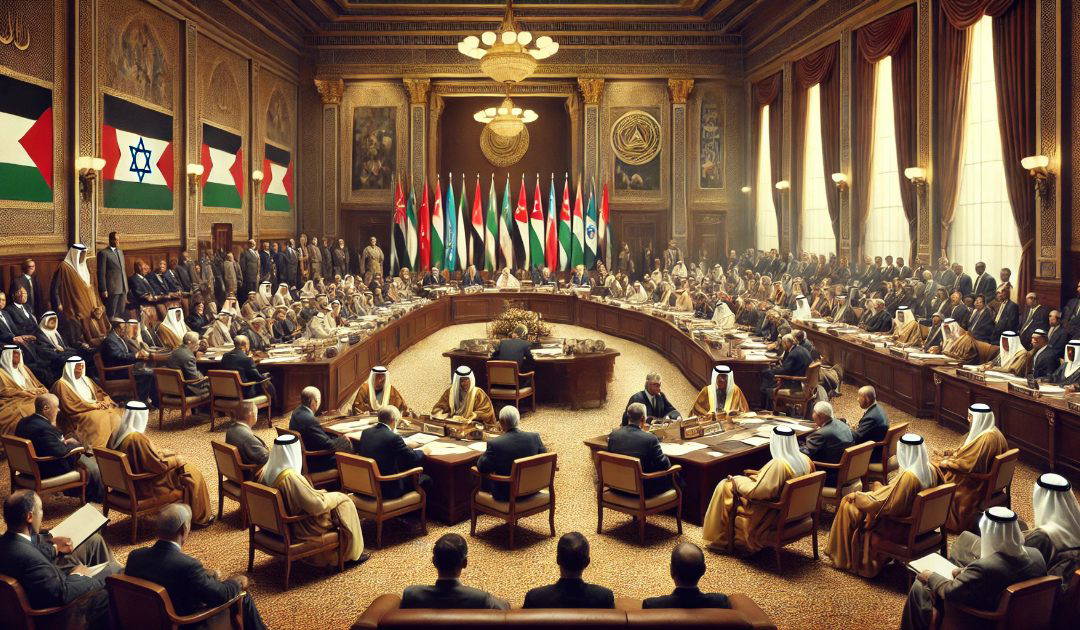On the 29th of May, 1964, the Arab League met in Jerusalem to discuss the Palestinian Question which led to formation of the Palestinian Liberation Organisation, or PLO. The Arab League was founded in 1945 with the aim of fostering political, economic, cultural, and social cooperation among its member states. By the 1960s, the League had expanded its focus towards a unified stance on the Palestinian question and the broader Arab-Israeli conflict.
The selection of East Jerusalem as the venue for this summit was symbolically significant. The city, which holds profound religious and historical significance for Muslims, Christians, and Jews alike, was at the epicenter of the Israeli-Palestinian conflict. At this time, East Jerusalem was under Jordanian control following the 1948 Arab-Israeli War, making it a fitting choice for the League’s deliberations on the future of Palestine and the Israeli-Arab tensions.
One of the primary resolutions of the 1964 Arab League summit was the creation of the Palestine Liberation Organisation (PLO). This entity was established to be the representative of the Palestinian people and to coordinate their efforts towards self-determination and the establishment of a Palestinian state. This move underscored the Arab nations’ commitment to the Palestinian cause and their willingness to intensify the struggle against Israel.
During the summit, Gamal Abdel Nasser, the then-President of Egypt, famously stated, “We all agree that the liberation of Palestine and the return of its people to their land is an essential duty for us all. The creation of the PLO is a step towards achieving this goal.” His words reverberated through the Arab world, highlighting a unified commitment to the Palestinian cause.
Ahmed Shukeiri, who was appointed as the first Chairman of the PLO, declared, “The PLO will serve as the beacon of hope for the Palestinian people and a symbol of their rightful struggle. We will not rest until Palestine is free.” These poignant words captured the resolve and determination that characterised the Palestinian movement.
The summit also discussed the water dispute concerning the Jordan River. Israel’s National Water Carrier project, which aimed to divert water from the Jordan River, was perceived as a threat to Arab water resources. This issue was viewed as a security concern, prompting the Arab League to adopt a more confrontational stance towards Israel in subsequent years.
The League’s resolution to encourage military cooperation and strengthen collective security among Arab nations was another crucial outcome. This decision was reflective of the escalating tensions with Israel, further fuelling the arms race and setting the stage for future conflicts.
The decisions made at the 1964 summit had immediate and long-term consequences. The creation of the PLO gave a formal and unified voice to the Palestinian movement. For the first time, Palestinians had an organisation explicitly dedicated to their political aspirations, leading to increased international recognition of their plight.
However, the PLO’s formation also contributed to the complexity of Middle Eastern geopolitics. The PLO, under the leadership of figures like Yasser Arafat, became increasingly militant, engaging in both diplomatic efforts and armed struggle. This dual approach led to frequent clashes with Israel and complicated relations with various Arab states, some of which were wary of the PLO’s activities within their borders.
The military resolutions adopted during the summit contributed to the build-up of hostilities that eventually culminated in the Six-Day War of 1967. The war had profound consequences: Israel’s victory resulted in the occupation of the Gaza Strip, the West Bank, and East Jerusalem, dramatically altering the map of the Middle East and exacerbating the Israeli-Palestinian conflict.
Looking back, the Arab League summit of 1964 can be seen as a catalyst for both unity and division. While it succeeded in unifying Arab nations around the Palestinian cause, it also set the stage for increased conflict and instability. The decisions made at this summit resonate today, influencing the ongoing discourse around the Israeli-Palestinian conflict and the broader tensions in the region.

